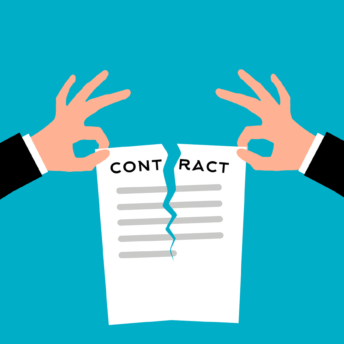Writing a Will is something we should all consider doing at some point in our lives. Even if you have a Will, it is important to keep it updated. A Will is a legal document explaining your last wishes and can include who you would like to leave your assets to, what your funeral arrangements should be and also perhaps setting up trusts for loved ones to ensure their financial security, or instructions to leave something to your favourite charity. The question then arises as to when would you be considered responsible enough to make a Will. This especially relevant if you are suffering from a condition that may be impairing your judgement. In this article, can I make a Will if I have dementia, we take a look at these issues in more depth and describe the mechanics of your will.
Free Initial Telephone Discussion
For a free initial discussion on how we can help you create your Will, get in touch with us today. We will review your situation and discuss the options open to you in a clear and approachable manner. Early expert legal assistance can help ensure your final wishes are accurately recorded and also avoid the stress of dealing with these issues on your own. Simply call us on 0345 901 0445 or complete our online enquiry form and a member of the team will get back to you.
What conditions fall under the definition of dementia?
Dementia is an umbrella term that refers to a variety of illnesses and conditions that result in an impairment of the brain and a decline in intellectual functioning.
If you want to make decisions about your estate and what happens to your assets when you die, is this possible if you have some form of dementia? Unfortunately, there is no straightforward answer to this question but it is useful to understand the usual requirements for making a Will.
Is there a recognised standard for writing a will?
In theory you can write your will on the back of an envelope. However, as it is a legally binding document it must meet certain criteria. It needs to be witnessed and signed by two independent adults and dated. These witnesses cannot inherit anything from your will or benefit from your will in any way (although they can act as executors). Your will should also name your executors, who are authorised to gather in your assets and divide them up according to your instructions. This process is known as probate. As long as the executor is not a witness, they can be a beneficiary of the Will.
Testamentary Capacity
In order to make a Will, you must have ‘testamentary capacity’. This legal term means there are specific things that you must be able to understand:
- What making a will means and the effect that it will have.
- What you own and how this might change, including what you may owe or be owed in future.
- Who might expect to be named in your Will, and why you are choosing to either leave or not leave things to them.
If a person has dementia, then for their Will to be valid, their dementia must not affect their ability to make decisions about the Will.
What is a statutory Will?
If an individual lacks testamentary capacity, it is possible under the 2005 Act to apply to the Court of Protection for a ‘statutory Will’ to be prepared.
The Court will make a statutory will on behalf of a testator and must act in the best interests of the testator. They must consider the testator’s past and present wishes as well as their feelings, beliefs and values that would likely influence the testator’s decision if they had capacity.
The Court is most likely to execute a statutory Will if the testator has never executed a Will, or if there has been a significant change in the testator’s circumstances.
The Golden Rule
As long as you understand what you are doing and can make these decisions, then you can make a Will. However anyone’s Will can be disputed later on, and there are things you can do to avoid problems further down the road.
The courts have a ‘golden rule’ that, if someone has dementia or another condition that might affect their decision-making, then it is advisable to get medical evidence to say they are able to make the Will.
Although not compulsory, it is a good idea for you to get a medical opinion so that, if anyone questions your Will in the future, there is evidence that you were able to make one at the time.
Because of this, solicitors usually ask for a medical opinion when a person with a dementia diagnosis makes a Will.
How we can help
We have a proven track-record of helping clients draft their Wills. This includes relatively straightforward estates and also complex estates where assets are held all over the world. We will guide you through all the necessary legal due diligence in a comprehensive and timely manner. We firmly believe that with the right solicitors by your side, the entire process will seem more manageable and far less daunting.
How to Contact our Wills and Probate Solicitors
It is important for you to be well informed about the issues and possible implications of writing your Will. However, expert legal support is crucial in terms of ensuring your final wishes are met as you would want them to be.
To speak to our Wills and Probate solicitors today, simply call us on 0345 901 0445, or allow a member of the team to get back to you by filling in our online enquiry form. We are well known across the country and can assist wherever you are based. We also have offices based in Cheshire and London.






Leave a Reply
You must be logged in to post a comment.